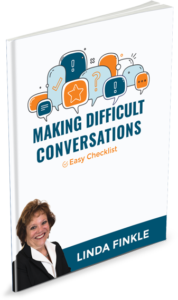A huge obstacle to successful communication is that our emotions get in the way. In fact, our emotions can and often do hold us hostage.
Emotions are chemical reactions in your body in response to your interpretation of a specific trigger. They precede feelings, are physical and instinctual, and can be measured by blood flow, brain activity, and more.
Feelings are mental associations and reactions to emotions, and are subjectively influenced by personal experience, beliefs, and memories. They cannot be measured.
While they are scientifically not the same, for the purpose of this article I am using the terms interchangeably. If you want more information on the neuroscience of emotions and feelings there is a ton of information available on the Internet.
What’s the big deal about emotions and how they affect communication?
We all know that people are emotional and when they feel strongly about something their emotions will come out. Isn’t this something we should simply accept as part of communication and move on?
The short answer is no, and let me explain why.
And, for clarification, I will focus on what people typically consider negative emotions…fear, resignation, anger, frustration, hurt, disappointment, dissatisfaction, resentment, pessimism, irritation, and more. These, not positive ones such as gratitude, joy, possibility, etc., are the ones that interfere with effective communication.
The Difficulty of Emotions in Conversations
We aren’t clear about our message.
When we are upset our emotions get in the way, and interfere with our own clarity about what we want to say and what we want from the conversation.
Think about a time you yelled at your kids for leaving their stuff all over the house.
Typically the conversation starts with “I’ve told you a hundred times to pick up after yourself” and moves to “do it now and your punishment is…”. You’re mad and frustrated, and understandably so, but think about this example. What was the message and what was the result you wanted? Probably you wanted the kids to realize they needed to be responsible and you were upset.
Maybe they got the upset part, but I’m guessing they missed the first part. You were so frustrated your message got scrambled.
Others respond to the emotions, not the words.
The energy that comes forward when we are upset is palpable. That energy is what others respond to and they don’t even hear our words. On the slim chance they do hear the words, they draw all sorts of conclusions and make assumptions about what you are saying that likely aren’t accurate.
One or both of you stop listening.
How often have you heard someone talking with lots of emotion coming forward and you simply sat back and waited until they were done talking? Clearly you weren’t listening. Because they are so emotionally charged, when you finally get around to saying something they aren’t listening either.
A sure recipe for ineffective communication.
What we say or do when emotional can damage relationships.
We’ve all been there. When we are upset we say or do something we typically wouldn’t. Even if we apologize it can damage the relationship. Some things can’t be undone.
If it happens repeatedly, the relationship may be irrevocably damaged.
What we say and how we say it may mean something different.
I’m sure you’ve heard the expression it’s not what you say, but how you say it that affects how people receive the message. It’s absolutely true.
Words matter.
The words we use matter when we are communicating and when we are highly charged emotionally we don’t stop and think about the words we are using.
It’s more than whether you use inappropriate language or name calling, though neither are helpful for successful communication. It might be as simple as expressing yourself incorrectly. Perhaps you share that you’re angry when the emotion you are feeling is hurt or disappointment.
How the other party reacts to you saying you are angry versus saying you are hurt or disappointed can change the course of the conversation and outcome.
No request is made.
It’s what we all do. We spit out what we want to say and assume the other person understands and gets it and will come up with a solution. How do they know what you want or even that you want something other than to complain?
Without a specific request, nothing is likely to change.
Emotions hold us hostage.
It means we are so emotional we can’t let go of how we are felling and almost anything we say comes through the place of emotion, whether it belongs in the conversation or not. When we want something different than what is happening currently, and it’s been occurring for some period of time, our emotions kick in and our approach to the conversation changes.
Many years ago I had a client who was traveling 5 1/2 days a week. She felt like she had no personal life and didn’t have time to manage simple tasks like going to the cleaners or dentist, let alone have friends and date. Maria was frustrated as she had discussed this with her boss several times already and nothing changed.
She felt like her only choice was to quit or have another conversation that likely would not change the situation anyhow.
During one of our conversations we role played the conversation she was going to have with her manager. Her anger and frustration came out in such force even I quit listening to what she was saying. And she did not make a request.
In my discussion with her I shared these observations and my personal reaction which would not be much different than her manager’s.
I had her get very specific about what she wanted as the outcome of the conversation, which was over three months to reduce her travel to four days a week, and over the next six to nine months to reduce it to two or three days.
Yet based on her initial conversation with me what I heard was “I don’t want to travel anymore because I have no life and I can’t do it anymore”. Once she was clear about the result she wanted, we were able to walk through how she could have that conversation so the communication was successful, meaning her boss heard her requests, not necessarily that her boss agreed to give her what she was asking for.
The end result was her boss was very open to working with her on a plan to reduce her travel.
Mission accomplished.
Communicating effectively is difficult for most of us under ideal conditions.
When we add in emotions it complicates it even further. It’s impossible to not have emotions. What I’m saying is that they can’t be front and center in your conversations, because then communication stops.
Before having another conversation where you are emotionally charged pause and ask yourself what you want to accomplish from the communication, and how you can achieve that goal without emotions getting the best of you, or in the way.
Having difficult conversations is not easy. You’re upset, frustrated and annoyed you are put in the position to have them in the first place. While I can’t promise all your conversations will be easy I do have tips for making them easier.
Click the link below and download our Making Difficult Conversations Easy Checklist.









